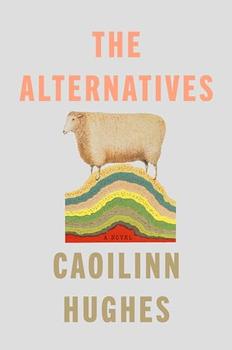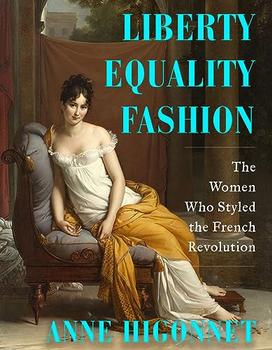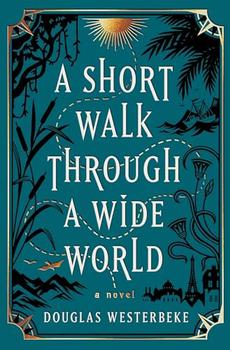Summary | Excerpt | Reviews | Beyond the Book | Read-Alikes | Genres & Themes | Author Bio

Critics' Opinion:
Readers' Opinion:
First Published:
Nov 2021, 816 pages
Paperback:
Jun 2022, 816 pages
 Book Reviewed by:
Book Reviewed by:
Kim Kovacs
Buy This Book
This article relates to Never
 Much of Ken Follett's novel Never is set in present-day Chad, a landlocked nation located in north-central Africa. Officially known as The Republic of Chad, at 496,000 square miles, the country is the fifth largest on the continent.
Much of Ken Follett's novel Never is set in present-day Chad, a landlocked nation located in north-central Africa. Officially known as The Republic of Chad, at 496,000 square miles, the country is the fifth largest on the continent.
Chad has a long and complex history; it's one of the areas scientists believe may have been the cradle of humanity. The 2001 discovery of a 6- to 7-million-year-old hominid skull, from a primate known as Sahelanthropus tchadensis, supports this theory. It's believed that modern humans began continuously inhabiting the area around Lake Chad starting roughly 10,000 years ago, and there's evidence of a trans-Saharan trade route running through this location from around 3000 BCE. In addition, archeological exploration has revealed walled cities built during that time. Between 700 and 900 CE, the Kanembu people gained prominence and established ironworks, and in approximately 1000 CE traders from West Africa introduced Islam, which became the dominant religion in the northern portion of the country.
The early population hunted, fished and grew crops. They were largely tribal, living in small villages with local governments. Warfare was common, particularly in the border area between the well-organized Muslims in the north and the poorer villages in the south; northerners often attacked the south to gain slaves. From the 1400s through the 1800s, the territory of Chad was ruled by various different empires, including the Kamen-Bornu, Baguirmi and Ouaddai.
Rabah Zubair Fadlallah (1840-1900 CE) was born a slave in North Chad, but eventually became a warlord and slave trader himself, gaining enough power to be considered the ruler of this region. During his reign, France sent expeditionary forces to the area and laid claim. Fadlallah marshaled an army against them but was defeated and beheaded by the French. Today he's considered a hero by many for his resistance to French colonization.
Once obtained, the French largely ignored Chad; no investment was made in its infrastructure or in developing its economy. In addition, its citizens were forced into the French army and unpaid labor was often mandated. French colonial laws allowed all people to be pressed into service in the case of an "emergency," and since those enforcing the laws were largely corrupt tribal leaders who had gained power by collaborating with the French, much of the country's population was effectively enslaved.
The worst of the abuses ended after World War II, which left France too weak to continue supporting the colony in any capacity. Forced labor was abolished and political parties emerged. There were two major factions: the Chadian Democratic Union (UDT) which catered to Muslims in the north and the Chadian Progressive Party (PPT) which was backed primarily by those in the south. Elections were held in 1959 and the PPT won an overwhelming victory. On August 11, 1960, Chad declared independence from France. This did not mean democracy had come to Chad, however; its government since has largely been controlled by dictatorial leaders. The country's fifth president, Idriss Déby Itno, staged a coup in 1990 to gain the office, which he held until he was killed fighting rebel forces in April 2021. Rather than hold new elections as required by the country's constitution, the military dissolved the government and established a transitional council to govern for an 18-month period. The head of this military tribunal is Mahamat Idriss Déby, who is Idriss Déby Itno's son.
Chad's boundaries were set rather arbitrarily by France, and there are no defining geographical features that mark its borders. More than half the country's landmass extends into the Sahara Desert, an extremely arid region with little vegetation, comprised of dunes and plateaus.
Lake Chad is located on the western edge of the nation, in what's known as the Sahel – a grassy area of open steppe that encompasses much of the central portion of the country. The lake, a former inland sea, is believed to have covered approximately 390,000 square miles in 5000 BCE. It is under 600 square miles now, and is believed to have shrunk by 95% from the 1960s to the late 1990s. Climate change is partially to blame, but the lake has also been depleted by the population's reliance on its tributaries to water crops. Most of the country's large animals (elephants, giraffes, lions, etc.) live in the Sahel region, although their numbers are in decline due to habitat loss and poaching.
Chad has a relatively small population, with an average of just 20 people per square mile. It's also a very young population; the life expectancy is below 50 years of age (which is comparable to that of its neighbors but nowhere near the world average of 72.6 years) and half of its residents are under the age of 15. Primary causes of death are lower respiratory infection, malaria and HIV/AIDS. It also has one of the highest levels of hunger in the world. According to the World Food Programme, "66.2 percent of its population of 15.5 million live in severe poverty. It is ranked 187th out of 189 countries in the 2019 Human Development Index. Conflict and the climate crisis exacerbate hunger and poverty in Chad."
The country's official languages are French and Arabic, although over 100 are spoken across the region. Education is lacking, with fewer than half of school-aged children enrolled, and only about 20% of the populace lives in a city. More than half are Muslim, especially in the north and eastern parts of the country, and polygamy is common (more than 40% of Chadian women live in a polygamous household).
Most people continue to support themselves through agriculture, and until production of oil began in 2003, cotton, cattle and fish were the country's biggest exports (oil has since become Chad's most valuable commodity). Nevertheless, Chad relies heavily on foreign assistance, with funds received from other countries generally exceeding what it makes exporting goods.
Lake Chad in 2017, courtesy of Wikimedia Commons
Filed under Places, Cultures & Identities
![]() This "beyond the book article" relates to Never. It originally ran in January 2022 and has been updated for the
June 2022 paperback edition.
Go to magazine.
This "beyond the book article" relates to Never. It originally ran in January 2022 and has been updated for the
June 2022 paperback edition.
Go to magazine.




Your guide toexceptional books
BookBrowse seeks out and recommends the best in contemporary fiction and nonfiction—books that not only engage and entertain but also deepen our understanding of ourselves and the world around us.